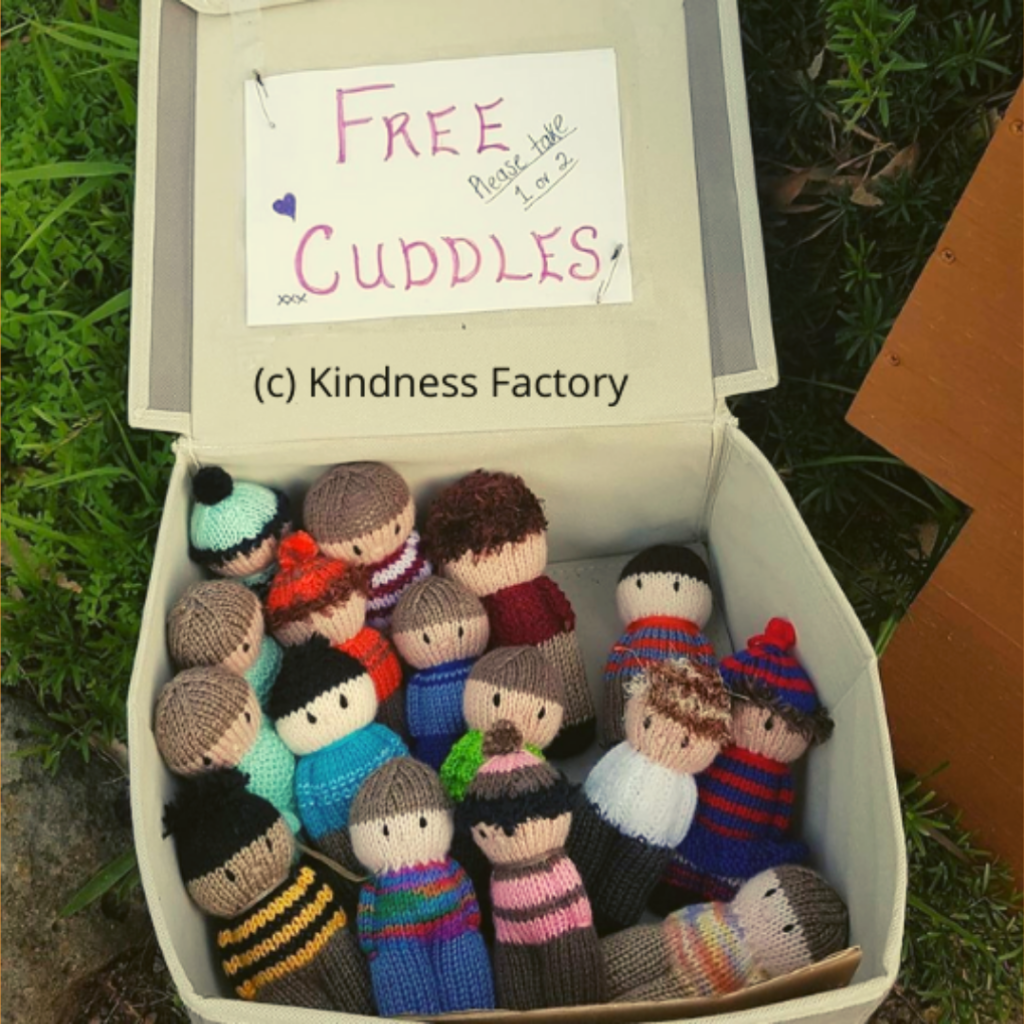One of the most important lessons I’ve learnt in my life is how kindness to oneself and to others can get you through some of the toughest times. Having faced serious personal, mental and physical setbacks including learning how to walk again on two separate occasions, kindness gave me the courage to overcome challenges.
What was once a truly undervalued trait, kindness is fast catching on as one of the most vital human currencies we can have – particularly right now, as we recognise the importance of thinking of others during a time of pronounced hardship and suffering.
Since 2015, I’ve dedicated my life to showing how kindness can be transformative – and truly believe it should be a staple in our education system, valued as highly as maths, english and science.
I started Kindness Factory in 2015, with a goal of encouraging and inspiring 1 million acts of kindness. In the process, I have not only reached that goal but have raised close to half a million dollars for various charity organisations.
Through Kindness Factory, the funds we raise go towards educational programs in schools and universities, ensuring the next generation grows up with a foundation of kindness.
As part of my work, I visit schools regularly to encourage kindness and to share my personal story with students and teachers. In doing so, I aim to show how engaging with kindness can inadvertently remedy bullying and anti-social behaviours.
It can act as a preventative tool slowing down these social problems and prevent the potential knock-on mental health issues that occur after.
Many of the schools that I visit reach out to me directly, as they have commonly experienced an epidemic of bullying or tragically, in some cases, lost a student to suicide. These instances broke my heart and left me wondering what more I could have done, or what more society could have done to help these students. It was one thing to share my story and give hope, but surely there something more was needed.
By supporting a child to develop an internal compass of compassion and kindness, we are helping them create healthy beliefs about themselves and the world around them, which arms them with a resilient and positive mindset, one of the key components to living a happy and healthy life.
From this, the Kindness Curriculum was born.
Staying true to Kindness Factory’s values, I collaborated with Kaplan Australia, a team that shares my passion for kindness, to create the Kindness Curriculum, so that schools, parents and the wider community can continue to educate children on the importance of kindness towards others and oneself. The Kindness Curriculum not only intends to seamlessly exist alongside the current Australian Curriculum, it seeks to play as much of a role in children’s development as other key educational subjects, like maths.
With studies showing the great physical, emotional and mental health benefits of showing kindness within your community, the Kindness Curriculum provides learning activities that promote positive mental health and kindness strategies to support Australian youth in being happy, confident, well-rounded individuals, for generations to come.
Attitudes and behaviours are learned, no one is born with the capacity to be inherently hateful to another. Hate is learned. In return, if we can learn to hate then we can definitely learn to be kind from a young age.
The Kindness Curriculum, developed, sourced and collated activities that teachers and schools can use to open up conversations with students and positively promote and practice kindness.
These activities compliment the Australian Curriculum and teach students the 12 key attributes of kindness, including empathy, positivity, perspective, and humour, among others.
Each attribute has a corresponding group activity of up to 40 minutes that’s suitable for early learning up to senior schooling groups. For example, with empathy, children up to five years of age, use emotion cards and a video image to name that feeling, while children in the early years use the emotions cards to create a feelings collage.
We hope to inspire all humans to play kind, have fun, stay connected with others, know when to reach out for help, exercise resilience and treat themselves, and the planet with dignity and respect.
Kath Koschel established the Kindness Factory in 2015 with a mission to make the world a
kinder place. After a string of devastating and life changing setbacks, which saw Kath spiral
into a darkness most would not recover from, Kath turned to kindness. Simple acts that she
could afford to change someone’s day and show them that someone cared, from helping a
neighbour unload their car, to taking the time to speak to a person in need.
The Kindness Factory hopes to inspire all humans to play kind, have fun, stay connected with
others, know when to reach out for help, exercise resilience and treat themselves, and the
planet with dignity and respect.
- This author does not have any more posts.











